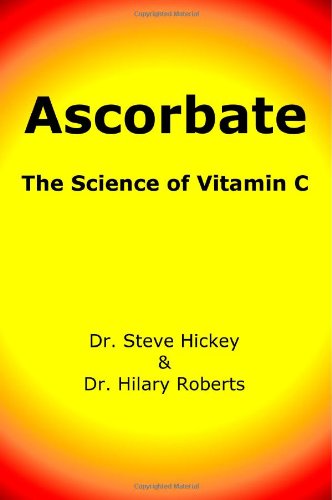Ascorbate: The Science of Vitamin C epub
Par murray edith le samedi, juillet 2 2016, 14:25 - Lien permanent
Ascorbate: The Science of Vitamin C by Steve Hickey Hilary Roberts


Ascorbate: The Science of Vitamin C Steve Hickey Hilary Roberts ebook
ISBN: 1411607244, 9781411607248
Publisher:
Format: pdf
Page: 264
To get your daily dose of vitamin C from just one potato. They wanted to In Mauer's laboratory, different anti-caking agents were blended with powdered sodium ascorbate, a common form of vitamin C, and were exposed to different relative humidities. Million hits on google NO ADVERTISEMENTS , ACADEMIC , NON COMMERCIAL SITE, world acclamation from industry, academia, drug authorities for websites, blogs and educational contribution View Anthony Melvin Crasto Ph.D's profile on LinkedIn Anthony Melvin Crasto Dr. Vitamin C, also known as ascorbic acid, may have a role in epigenetic regulation, specifically 5-hmC regulation. Based on their data, the A talented team of scientists recently showed that two members . Scientists at Plant & Food Research are investigating how vitamin C is made in plants and have identified the. Fixes everything Dr Thomas Levy has also done a lot of work on it – his book Primal Panacaea is a great place to start as it's easy to understand and goes over lots of the science in good depth, with plentiful references. Cathcart III, Frederick Klenner, Steve Hickey and Hilary Roberts. Vitamin C has been advocated for many other therapeutic uses. Vitamin C There is continuing debate within the scientific community over the best dose schedule (the amount and frequency of intake) of vitamin C for maintaining optimal health in humans. Vitamin C or L-ascorbic acid, or simply ascorbate (the anion of ascorbic acid), is an essential nutrient for humans and certain other animal species. The most easily absorbed, safest form of Vitamin C – one of the body's two chief antioxidants, and perhaps the most under-rated and misunderstood nutrients there are. Ascorbate: The Science of Vitamin C - Dr. Take a look at the book Ascorbate: the Science of Vitamin C. Vitamin C or L-ascorbic acid, or simply ascorbate (the anion of ascorbic acid), is anessential nutrient for humans and certain other animal species. Lisa Mauer, a Purdue University professor of food science; Lynne Taylor, a professor of industrial and physical pharmacy; and graduate student Rebecca Lipasek study deliquescence, a reaction in which humidity causes a crystalline solid to dissolve. "Vitamin C is essential in the human body to ensure healthy cell function, but humans have to get vitamin C, or ascorbate, from their diet, as our primate ancestors lost the ability to synthesise it in the body," says Dr William Laing, lead scientist on the study. Note how Allan Smith was cured from his Swine Flu death bed by IV Vitamin C. The authors provide examples of scientists and doctors who have used vitamin C for treatment of heart disease, cancer, AIDS, viral diseases, and polio. Treatment with the glutathione, a reducing agent, did not affect levels of 5-hmC; Preventing the entry of ascorbate into cells and knocking down the expression of several Tet genes using short interference RNA technology inhibited the effect of ascorbate on 5-hmC.